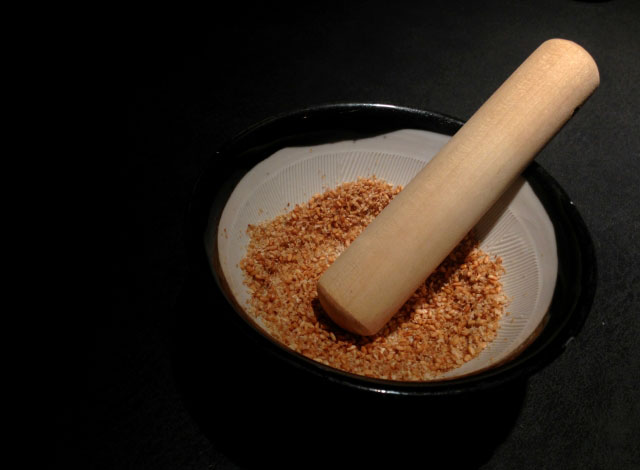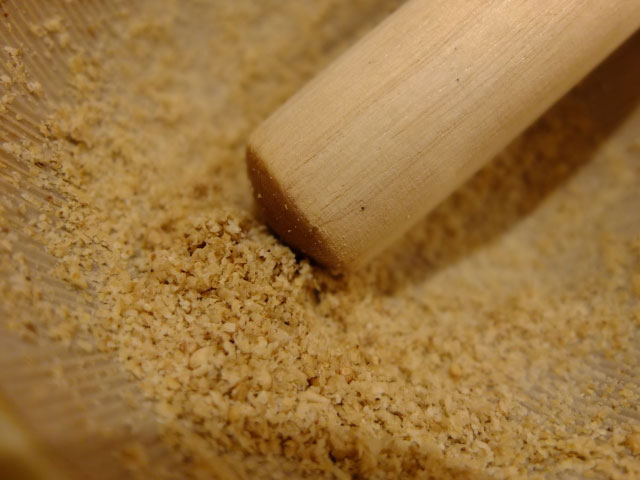 Japanese cooking relies on a few carefully selected implements…a good knife, long chef’s chopsticks, a rice cooker and a mortar and pestle, or the suribachi and surikogi.
Japanese cooking relies on a few carefully selected implements…a good knife, long chef’s chopsticks, a rice cooker and a mortar and pestle, or the suribachi and surikogi.
The suribachi is a finely-crafted earthenware mortar, in which all kinds of foods, seeds, spices and herbs are ground. Glazed on the outside in either a traditional brown or more modern hues, the medium-to-large sized bowls are carefully designed on the inside with rough ridges, called kushi-no-me, against which the cook will grind food. As with many Japanese arts, these fine ridges are often created to be beautiful as well as functional, and can be found in circular, comma or daisy-wheel patterns. When used with a surikogi, or wooden pestle, the textured interior surface helps to mash food quickly, until it is pulverized to the desired consistency.
The surikogi adds much to food preparation. Traditionally, the surikogi is made from the thicker part of the trunk of a sansho bush (Japanese pepper tree). When the knobby bark is left on the pestle, it helps cooks hold onto the implement more easily, and also imparts a slight and subtle peppery flavor to the food in the mortar.
The suribachi is originally from China and was introduced to Japan sometime in the 11th century. The earliest ones were made from rough stone and used to make medicine, grind flour, and roughly work other food. In modern Japanese kitchens, the suribachi and surikogi are much more refined, and usually purchased as a set.
Japanese cooks will tell you to buy a big suribachi so that seeds don’t come flying out, and a sturdy, thick surikogi, so that it stands up to the demands of crushing and grinding. When using the suribachi, it’s important to place it on a flat surface, on top of a silicone mat or folded towel, for stability. And the best technique for using the surikogi is to hold it with two hands, one at the top of the dowel and one at the bottom, and rotate around the mortar.
For many gourmet cooks, implements like the suribachi and surikogi can be used to make dishes from multiple cuisines…Japanese shiraae dishes, Middle Eastern hummus and muhamara, Indian garam masala, and even Moroccan harissa! No matter what style of food you enjoy, the Japanese suribachi and surikogi are drool-worthy kitchen wonders.
Tell us what you use yours for!

Leave a Reply